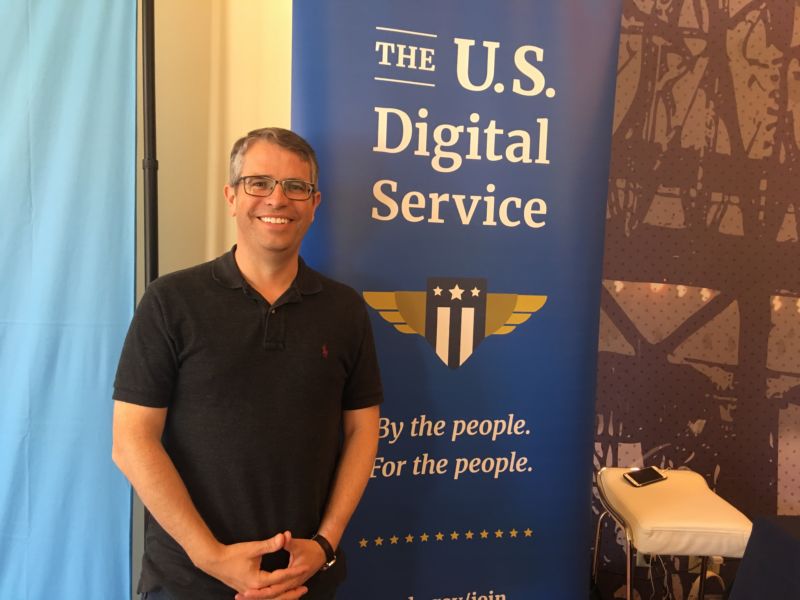
Cutts is the current acting administrator of the United States Digital Service—a federal agency that is basically the federal government’s friendly IT staff. It works with everyone from the Department of Defense to the Department of Agriculture to make government websites and online services work better.
Remember the disastrous rollout of healthcare.gov? This Obama-era agency was created in order to fix it. Cutts has been in the job since the first day of the Trump administration, as he was the deputy left in the big chair when his boss' term ran out.
The president has yet to appoint a new administrator, which means that Cutts is in charge of this 180-person agency.
Nearly all USDS positions are temporary by design—100 of the staff started after the election, with 25 starting since January 2018. But, Cutts says, there are 50 slots left to fill. He's proud to note that 60 percent of USDS' leadership team are women.
"Working for the government doesn't pay as well as a big company in Silicon Valley," Cutts wrote in 2017. "We don't get any free lunches. Many days are incredibly frustrating. All I can tell you is that the work is deeply important and inspiring, and you have a chance to work on things that genuinely make people's lives better."Over chips and salsa at a hotel bar, the Google alumnus ("Xoogler”) explains in a friendly, hopeful manner that, with the vast majority of the work that he and his team are doing, they are making non-partisan, non-controversial attempts to improve government online services. Their innovations include crazy-modern improvements like cloud backups, multi-factor authentication, and single logins across multiple government websites.
There are also numerous efforts to let the government subject itself to bug bounties ("Hack the Pentagon"), when such audits haven't typically been the norm. More audits, Cutts says, are coming soon.
A new program that the USDS is working on, he says, will make it easier for American farmers to legally hire foreign labor—providing a "one-stop shop" rather than the myriad forms and websites that they currently have to deal with.
"We are better positioned to make change now than ever before," he says, before transitioning to his well-rehearsed pitch. "What we need are more engineers, designers, and product managers. Apply at usds dot gov slash join!"
Cutts dreamily admired what might be the world's best example of e-government, Estonia, which famously rolled out its "e-residency" program worldwide after bringing similar government services through a digital ID card nationwide.
"Estonia shows that all this stuff is possible," he says, while acknowledging that it would be difficult to scale in the United States. Also, in order to change the broad, entrenched government mentality, we would need to "convince people that using the cloud is not illegal."
Still, after an hour-long conversation, he took us down to the USDS booth outside the main stage, where he giddily introduced Ars to members of his staff, who are busy handing out promotional sticker sheets in an effort to recruit conference attendees.
"Yay, we're the feds!" he says with almost child-like glee.
You must login or create an account to comment.